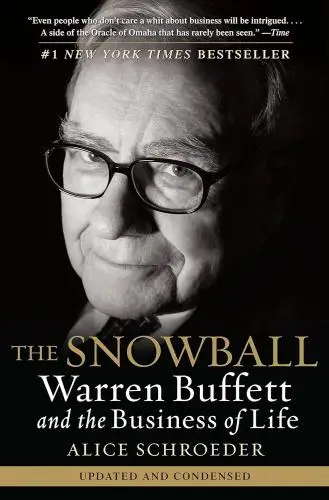
The Snowball
Warren Buffett and the Business of Life
What's it about?
The Snowball: Warren Buffett and the Business of Life by Alice Schroeder is a dive into the life and mind of one of the world's most successful investors. This biography not only charts Buffett's journey from his early days to becoming the CEO of Berkshire Hathaway but also delves into his unique investment philosophy, personal challenges, and the key relationships that shaped him. Schroeder's detailed narrative provides an unparalleled glimpse into Buffett's strategies, making it a must-read for anyone interested in finance, business, or the art of making wise decisions.
About the Author
Alice Schroeder is an American author and former insurance analyst, best known for her biography of Warren Buffett, "The Snowball: Warren Buffett and the Business of Life." Her detailed, insightful writing offers a deep dive into Buffett's life, investment philosophy, and business strategies, earning critical acclaim for its thoroughness and readability.
10 Key Ideas of The Snowball
Embrace the Power of Compound Interest for Long-Term Wealth Accumulation
Understanding and leveraging compound interest is crucial for building wealth over time.
By reinvesting earnings, you allow your investments to generate their own earnings, creating a snowball effect.
This principle emphasizes patience and the long-term perspective, discouraging the temptation for quick financial gains through high-risk ventures.
It's about making your money work for you over years and decades, allowing small, consistent investments to grow exponentially.
Learn DeeperStart Early: The sooner you begin investing, even with small amounts, the more you can benefit from compound interest. Consider setting up automatic contributions to a savings or investment account each month.
Reinvest Dividends and Interest: Instead of spending the dividends or interest you earn, reinvest them. This increases the amount of money that is compounding, accelerating the growth of your investments.
Diversify Your Investments: Spread your investments across different asset classes (stocks, bonds, real estate) to reduce risk and increase the potential for compound growth over time.
Avoid Unnecessary Withdrawals: Resist the temptation to withdraw your investments for short-term needs unless absolutely necessary. Compounding works best when you allow your investments to grow undisturbed over long periods.
Monitor and Adjust: Regularly review your investment portfolio to ensure it aligns with your long-term financial goals. Adjust your strategy as needed, but always keep the focus on long-term growth.
- Example
If you start investing $100 a month at an annual interest rate of 5% from the age of 25, by the time you're 65, you would have contributed $48,000, but due to compound interest, your investment would be worth over $150,000.
- Example
Consider Jane, who invests $5,000 in a stock paying a 4% dividend. Instead of spending the $200 annual dividend, she reinvests it in buying more shares. Over 20 years, with the dividends reinvested, her initial investment could grow significantly more than if she had taken the dividends as cash.
The Importance of Reading and Continuous Learning
Continuous learning through reading is essential for staying informed and making intelligent decisions, especially in investing.
Dedicating time to read broadly and deeply across various subjects, including finance, history, and psychology, can provide a competitive edge.
This habit fosters critical thinking and better judgment, enabling one to spot trends, understand market dynamics, and make well-informed decisions.
Learn DeeperSet aside dedicated reading time each day: Start with as little as 15-30 minutes daily. Choose a time when you're least likely to be interrupted, such as early morning or before bed.
Diversify your reading material: Include books, articles, and reports on various subjects like finance, history, psychology, and even fiction. This broadens your perspective and enhances critical thinking.
Join a book club or reading group: Engaging with others on what you've read can deepen your understanding and expose you to different viewpoints. Look for groups interested in non-fiction and business literature.
Apply what you learn: After reading, think of how the new knowledge can be applied to your personal or professional life. Write down any ideas or strategies that come to mind.
Keep a reading journal: Note down key insights, quotes, and how the material connects to your experiences or future goals. This practice reinforces learning and makes it easier to recall and apply information.
- Example
If you're interested in investing, start by reading 'The Intelligent Investor' by Benjamin Graham. Dedicate 30 minutes each evening to read a chapter and jot down key takeaways in your journal.
- Example
To understand market dynamics, read 'The Big Short' by Michael Lewis. Discuss the book's themes and its portrayal of the financial crisis in a book club to gain deeper insights and different perspectives.
Invest in What You Know and Understand
Focusing investments on industries or companies that you have a deep understanding of reduces risk and increases the likelihood of success.
This approach involves thorough research and analysis to gain insights that others might overlook.
It's about recognizing your circle of competence and sticking to it, rather than venturing into unfamiliar territories where the chances of missteps are higher.
Learn DeeperStart with What You Love: Begin by examining industries or companies you're already passionate about. This could be technology if you're a gadget lover, fashion if you're into the latest trends, or even food if you're a culinary enthusiast. Your existing interest will make research feel less like a chore and more like a hobby.
Educate Yourself Thoroughly: Dive deep into your chosen field. Read industry reports, follow market news, and study the financial health of companies within that sector. Websites like Investopedia, Morningstar, and the financial sections of major newspapers are great resources.
Analyze Competitively: Look at the competitors within the industry to understand what makes your chosen company stand out. Is it their business model, product innovation, customer loyalty, or perhaps their financial robustness? This will help you gauge the company's potential for success against its peers.
Engage with Communities: Join forums, social media groups, or investment clubs where you can discuss and exchange ideas with others who have similar interests. Gaining different perspectives can enrich your understanding and decision-making process.
Start Small and Monitor: Once you've made an investment, keep a close eye on the company's performance and the industry's overall health. Be prepared to adjust your strategy as you learn more and as market conditions evolve.
- Example
If you're a tech enthusiast, you might start by investing in a company like Apple or Microsoft, given your familiarity with their products and the tech industry's dynamics. Before investing, you'd research their financial health, product pipeline, and market position.
- Example
For someone passionate about renewable energy, investing in a company like Tesla or NextEra Energy could be appealing. You would analyze their growth potential in the renewable sector, government policies affecting the industry, and how these companies are innovating compared to traditional energy firms.
The Significance of Frugality and Saving
Living below your means and prioritizing saving over spending is foundational for accumulating wealth.
Frugality is not about being miserly but making conscious choices to allocate resources wisely.
This mindset ensures that you have the capital necessary to take advantage of investment opportunities when they arise and provides a safety net during downturns.
Learn DeeperTrack Your Spending: Start by keeping a detailed record of where your money goes each month. Use apps or a simple spreadsheet. This will help you identify areas where you can cut back.
Create a Budget: Based on your tracking, set a realistic budget that allows for savings. Allocate funds for essentials, savings, and a little for discretionary spending. Stick to it as closely as possible.
Automate Savings: Set up automatic transfers from your checking account to a savings or investment account. Treat savings like a non-negotiable expense.
Evaluate Purchases on Value, Not Just Price: Before buying, ask if the item adds value to your life or if it's merely a want. This mindset helps in making more conscious spending decisions.
Limit High-Interest Debt: Avoid debt that comes with high interest, like credit card debt. If you already have such debt, prioritize paying it off as it eats into your ability to save.
Invest in Yourself: Allocate resources towards improving your skills or education. This can lead to higher earning potential, which can further boost your savings and investment capacity.
- Example
After tracking her spending, Maria realized she was spending an excessive amount on dining out. She decided to allocate a portion of this budget to cooking at home, allowing her to save an extra $200 a month.
- Example
John noticed he was paying a lot of interest on his credit card debt. He focused on paying off this debt first by cutting unnecessary expenses and redirecting those funds to clear the debt, freeing up more money for savings.
The Value of Long-Term Relationships and Trust
Building and maintaining long-term relationships based on trust and mutual respect is vital in business and investing.
These relationships can provide valuable opportunities, insights, and support.
Trustworthiness attracts partners, investors, and opportunities, creating a virtuous cycle that contributes to sustained success.
Learn DeeperCultivate Authenticity: Be genuine in your interactions. Whether it's a business meeting or a casual conversation, let your true self shine through. This authenticity fosters trust.
Listen Actively: Show genuine interest in what others have to say. Ask questions, clarify doubts, and provide feedback. Listening is a cornerstone of building mutual respect.
Be Consistent: Whether it's in communication, delivering on promises, or your ethical stance, consistency is key. People trust and respect those who are reliable and steadfast.
Invest in Others: Take the time to understand the needs and goals of those around you. Offer your help without expecting anything in return. This generosity builds strong, lasting relationships.
Maintain Integrity: Always act with integrity, even when it's challenging. Making decisions that align with your values, even in the face of adversity, attracts like-minded individuals and opportunities.
- Example
Warren Buffett, the subject of 'The Snowball', is known for his long-term investment philosophy. He invests in companies he trusts, led by people he respects, and holds onto these investments for decades. His relationship with the management teams of these companies is based on mutual respect and trust, contributing to his sustained success.
- Example
A small business owner prioritizes her suppliers not just based on price but also on the quality of their relationship. She communicates openly, pays on time, and provides constructive feedback. Over time, this approach leads to preferential treatment, such as early access to new products or more flexible payment terms, benefiting both parties.
Deeper knowledge. Personal growth. Unlocked.
Unlock this book's key ideas and 15M+ more. Learn with quick, impactful summaries.
Read Full SummarySign up and read for free!
The Snowball Summary: Common Questions
Experience Personalized Book Summaries, Today!
Discover a new way to gain knowledge, and save time.
Sign up for our 7-day trial now.
No Credit Card Needed

Similar Books
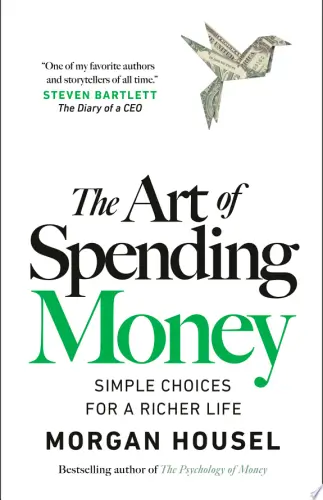
The Art of Spending Money
Morgan Housel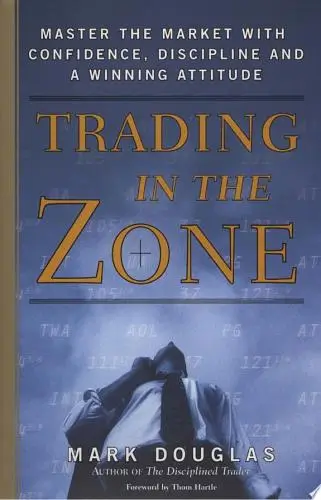
Trading in the Zone
Mark Douglas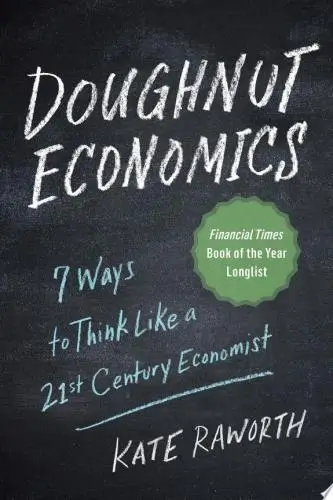
Doughnut Economics
Kate Raworth
A study guide for Barbara Ehrenreich's "Nickel and Dimed: On (Not) Getting By in America"
Gale, Cengage Learning
Bitcoin For Dummies
Prypto
Debt
David Graeber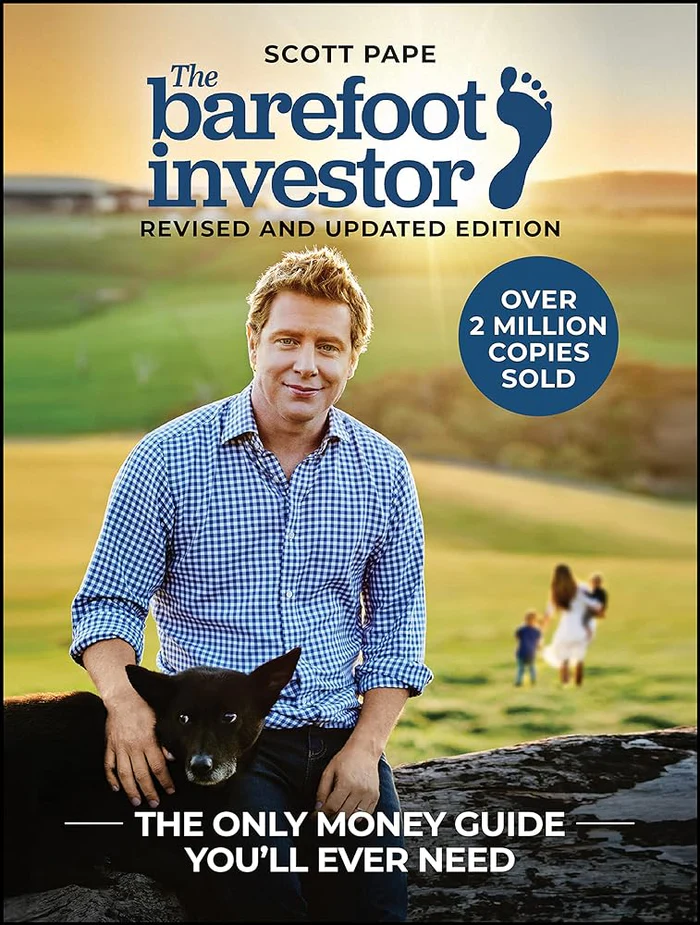
The Barefoot Investor
Scott Pape
Money Has No Value
Samuel A. Chambers
Financial Peace
Dave Ramsey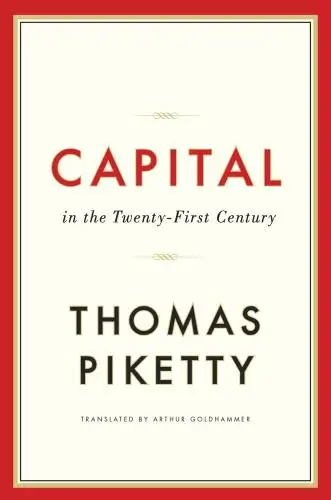
Capital in the Twenty-First Century
Thomas PikettyTrending Summaries

Peak
Anders Ericsson
Never Split the Difference
Chris Voss
Smart Brevity
Jim VandeHei
The Psychology of Money
Morgan Housel
The First 90 Days
Michael D. Watkins
Atomic Habits
James Clear
Thinking, Fast and Slow
Daniel Kahneman
The Body Keeps the Score
Bessel van der Kolk M.D.
The Power of Regret
Daniel H. Pink
The Compound Effect
Darren HardyNew Books

Comprehensive Casebook of Cognitive Therapy
Frank M. Dattilio
The White Night of St. Petersburg
Michel (Prince of Greece)
Demystifying Climate Models
Andrew Gettelman
The Hobbit
J.R.R. Tolkien
The Decision Book
Mikael Krogerus
The Decision Book: 50 Models for Strategic Thinking
Mikael Krogerus
Fichte
Johann Gottlieb Fichte
Do No Harm
Henry Marsh
This is Going to Hurt
Adam Kay
